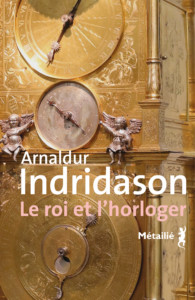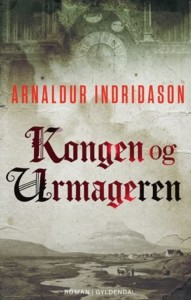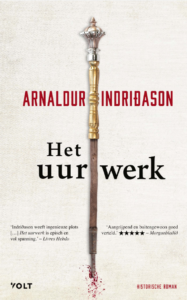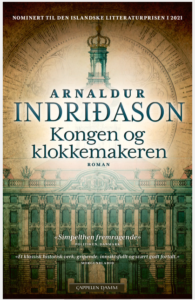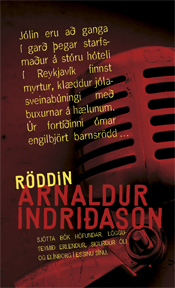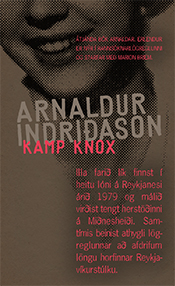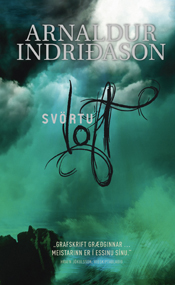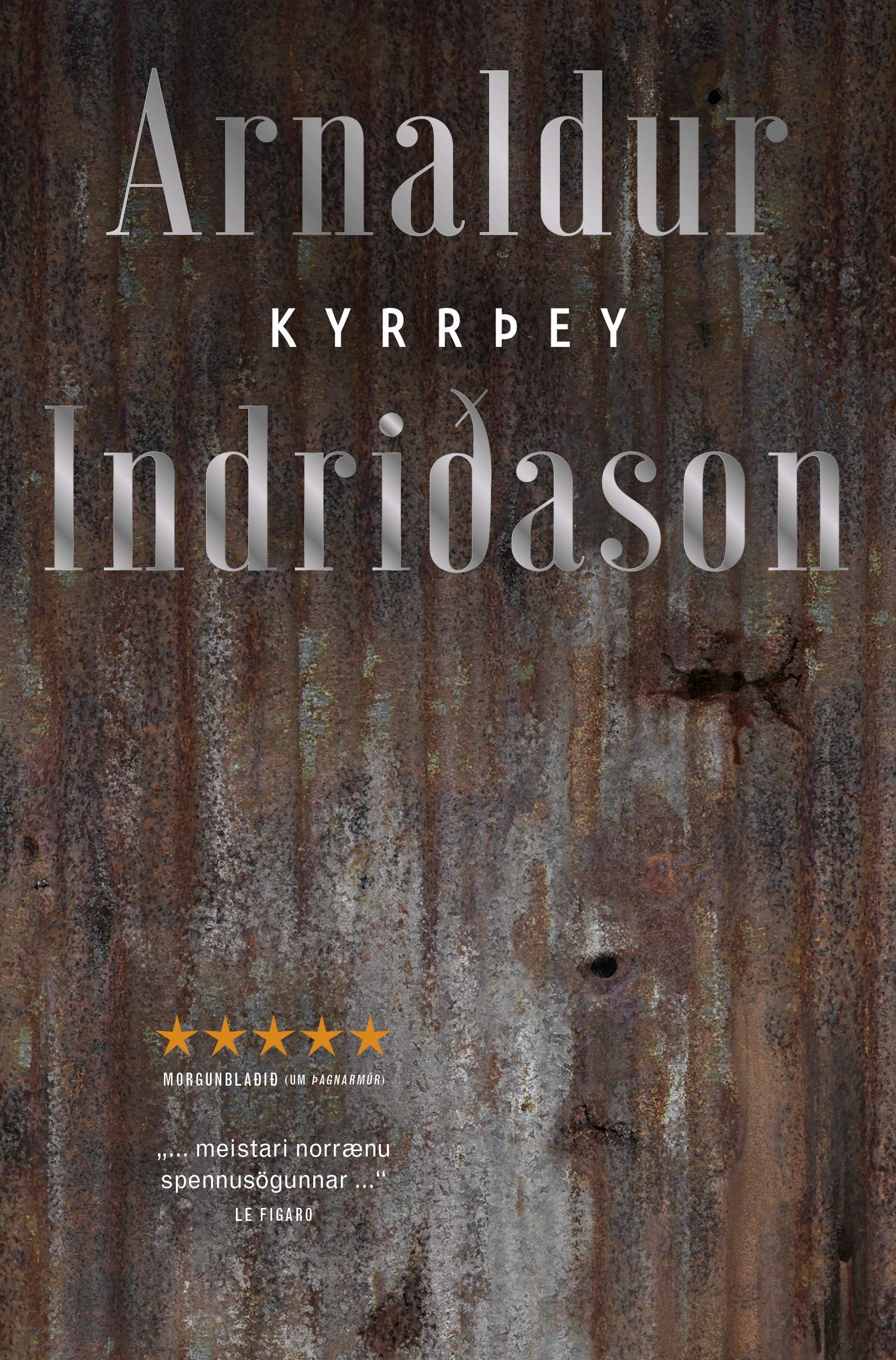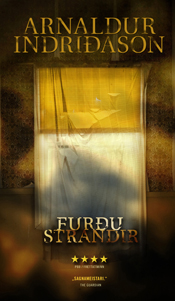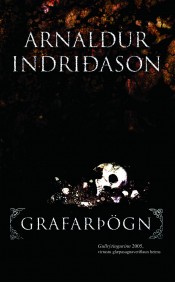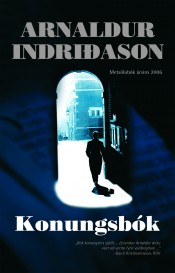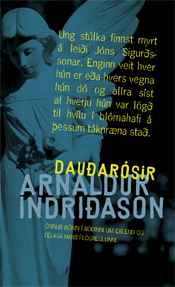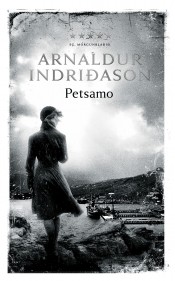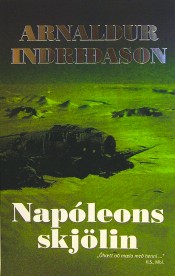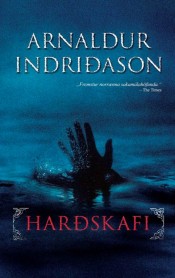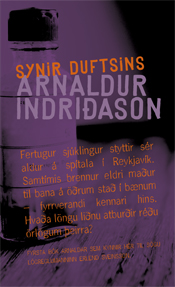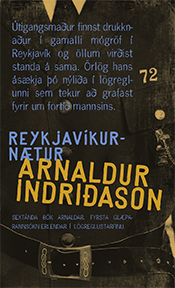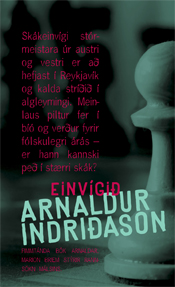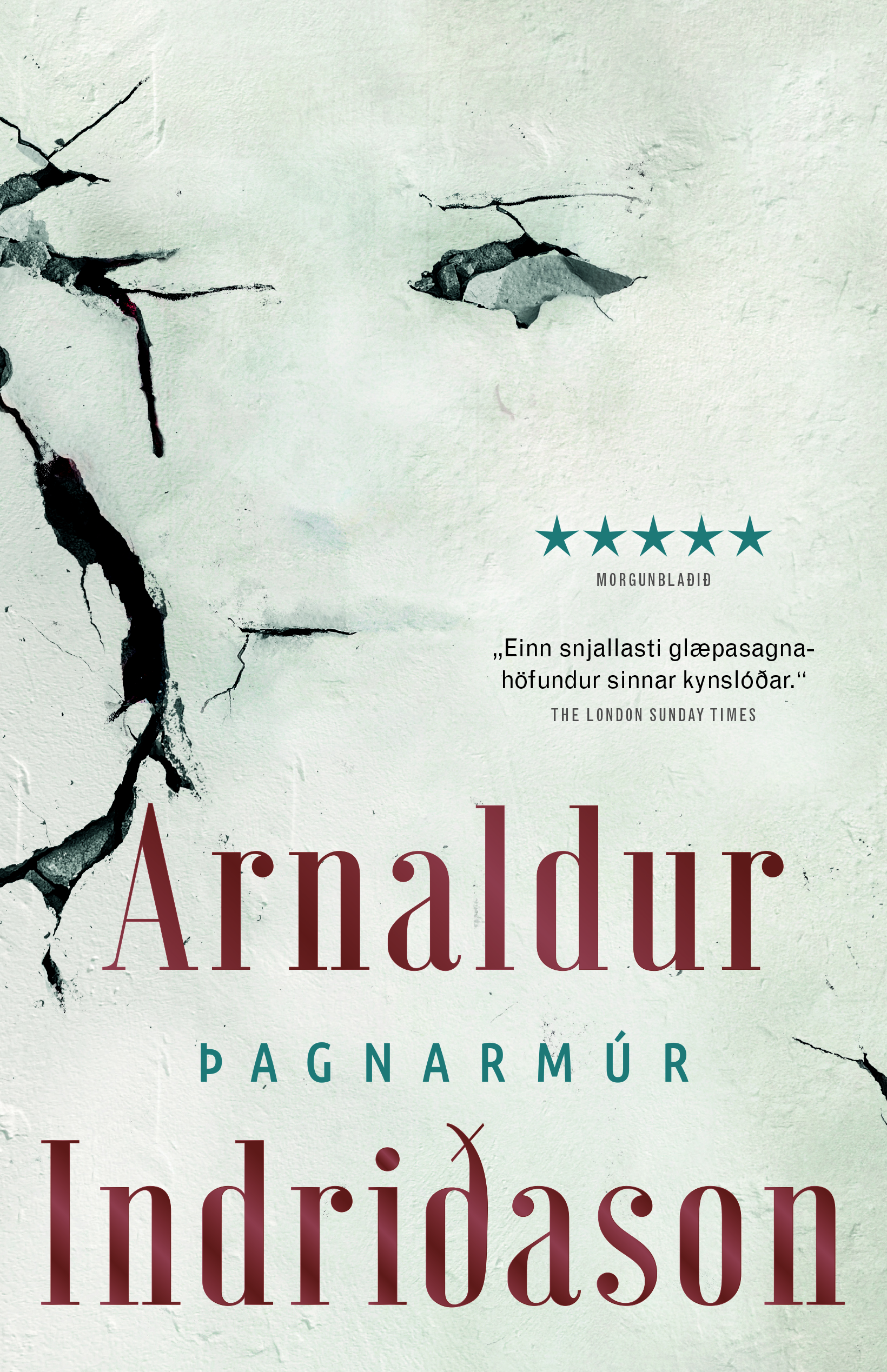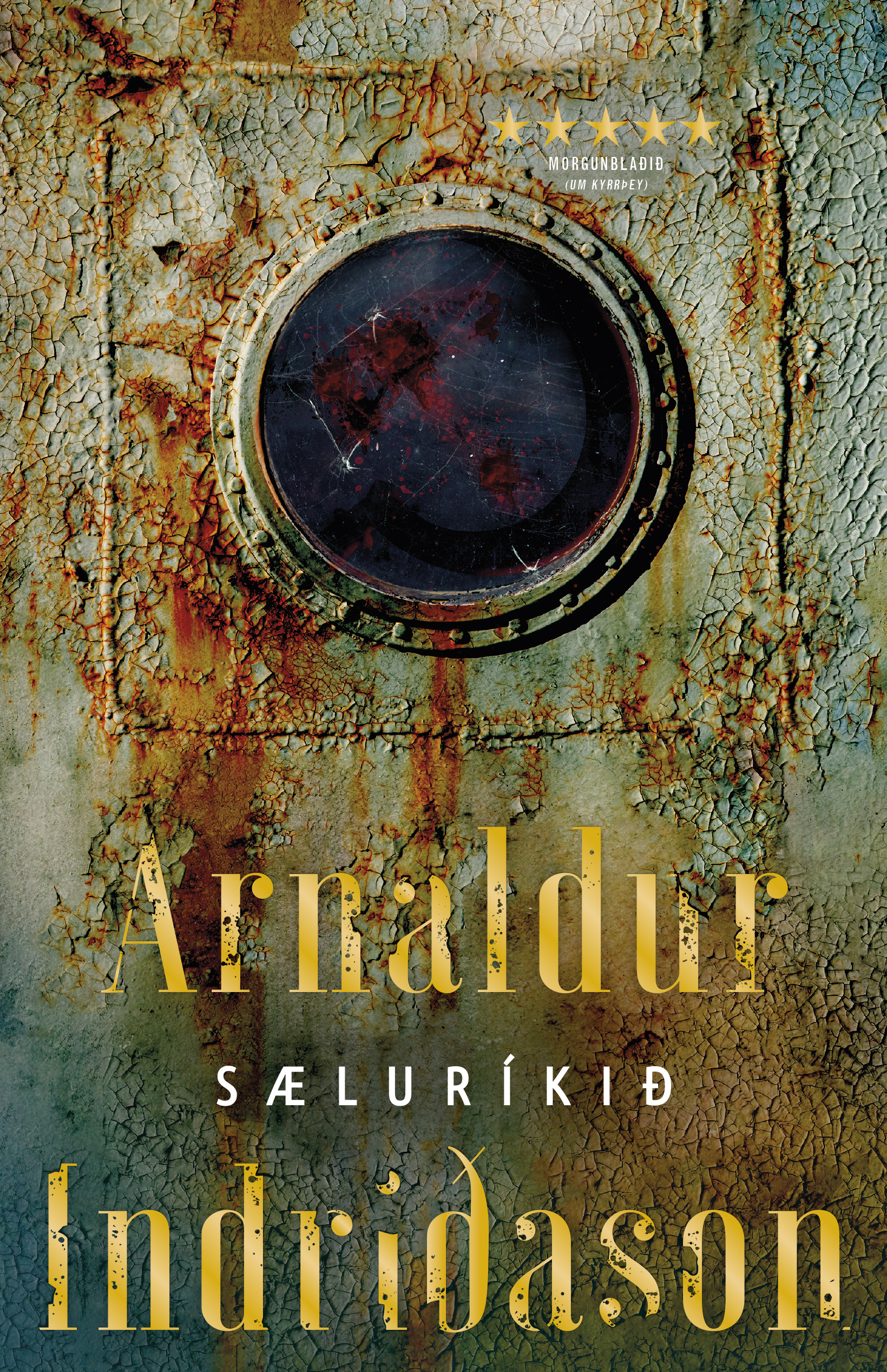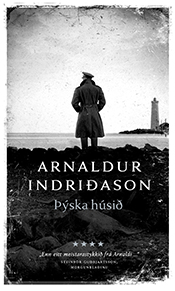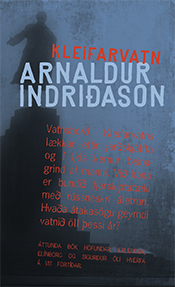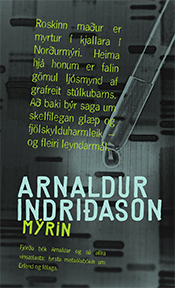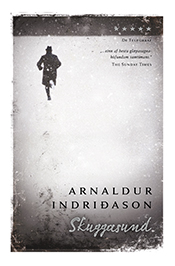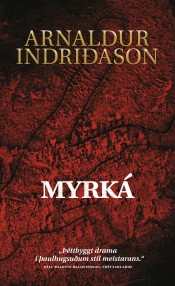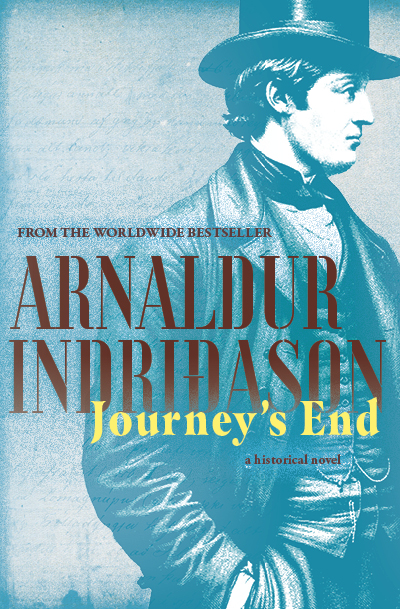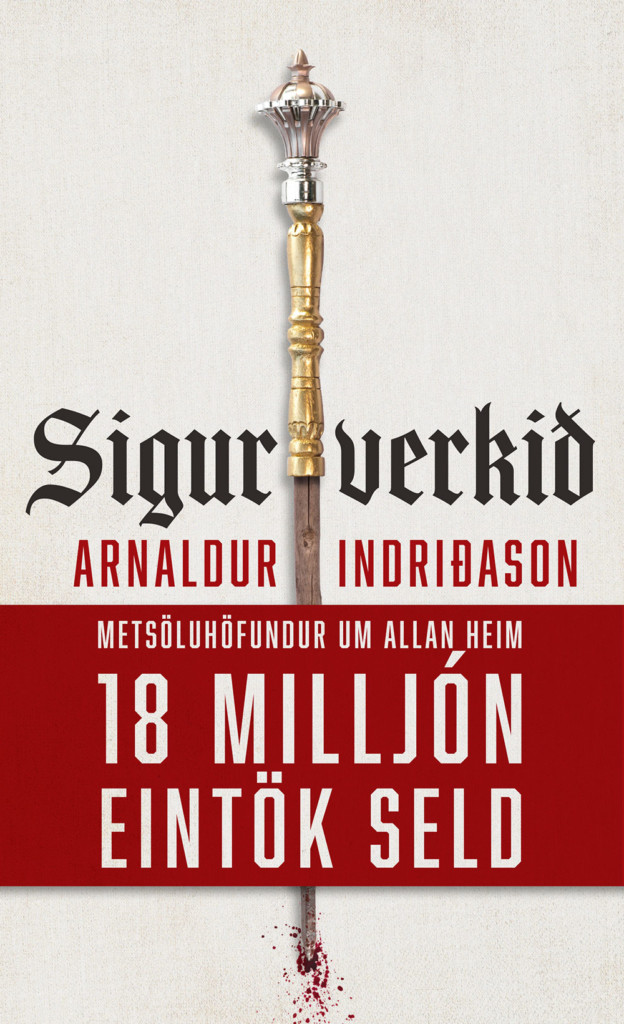
- Pages: 315
- Genre: Historical Fiction, Fiction
- Year: 2021
- Translation: English sample translation available
- Sold to:
- France (Éditions Métailié)
- Denmark (Gyldendal)
- The Netherlands (Uitgeverij Volt)
- Germany/Switzerland/Austria (Verlagsgruppe Lübbe)
- Spain/South America (RBA Libros)
- Norway (Cappelen Damm)
- World Arabic (Arab Scientific Publishers)
- Sweden (Norstedts)
- World English (Open Borders Press)
Truth and lies throughout the ages — innocence or guilt — cruelty and frailty are forever part of the human creature. Arnaldur Indridason treads a new path with an intriguing story based on actual events and characters. A compelling human drama in a remarkable narrative that is unique among the author’s works. Will appeal to readers of crime and historical fiction alike.
An Icelandic clockmaker works on repairing a splendid old astronomical clock in the palace of the king of Denmark. One evening, he is paid a visit by the monarch himself, Christian VII, who is still nominally head of the kingdom, but is considered not to be in full possession of his senses and has been pushed aside by his son and court. During their nocturnal talks, the watchmaker tells His Majesty the sad story of his father and foster mother, who were executed by the order of the previous king, Christian’s father.
The King and the Clockmaker is set in the 18th century in both the southern part of the Westfjords in Iceland and in Copenhagen. It tells a complex and tragic story in a powerful and moving exposition of the bitter fates of Icelandic commoners and the authority to which they are subject.
NOMINATION FOR THE ICELANDIC LITERARY PRIZE 2021
“The author strikes a new tone here compared to his previous work by pivoting to historical fiction in which figures from Icelandic and Danish history carry the narrative. A tragic story of cruel fate, written with dedication to and respect for the historical figures in lovely, captivating prose that elicits sympathy and a strong emotional reaction from the reader.”
JURY’S COMMENT
BOOK OF THE YEAR 2024 BY HISTO COUCH IN GERMANY
“A masterful interplay of fiction and history captivates readers in Arnaldur Indridson’s compelling novel The King and the Clockmaker. His remarkable linguistic skill brings to life both the past of Iceland and […] of Copenhagen in vivid detail.”
JURY’S COMMENT
❤ ❤ ❤ ❤ ❤
(five hearts out of six)
“Indridason is one of Iceland’s best writers … The King and the Clockmaker presents a profoundly dark narrative … a complex tale of love, narrated in the straightforward manner we associate with the sagas … Simply outstanding!”
BO TAO MICHAËLIS, POLITIKEN, DENMARK
“The author, who is one of Iceland’s best crime writers and has received the Glass Key twice, has written a solid tale of fate with clear historical traces without unnecessary adulation of royalty … The King and the Clockmaker emphasizes that we must engage with the past if we want to understand the present and, not least, the future.”
ANNE SOPHA HERMANSEN, WEEKENDAVISEN, DENMARK
★ ★ ★ ★ ★
(five stars out of five possible)
DRUSTRUPS BOGKLUB, DENMARK
“For anyone who enjoys reading novels with a historical theme, Arnaldur Indridason’s first contribution to the genre is a real gem – magnificent, heartfelt, inspiring, and with exciting insights into both Danish and Icelandic 18th-century life.”
KERSTI WESTIN, ALINGSÅS TIDNING
“… just as exciting as any detective story … As an author, Indridason is superior to most of his competitors from the crime fiction genre. ”The King and the Clockmaker” is written with the same light touch and has the same page-turning qualities. Even though it is not a crime novel, there is still a mystery at its core … Indridason knows the art of entertaining, and in this, he succeeds more than well this time too. Like in a detective story, it is not the resolution itself that is most significant, but the journey there. There is a constant, natural drive in the narrative, and it becomes an exciting journey back in time.”
JÖNKÖPING POSTEN
“True to form, Indriðason does not use a word too many, and this time he saves the very best for last.”
JANNE ADEEN, KALMARS LANS TIDNING
“Arnaldur Indridason absolutely masters his art.”
FABIENNE PASCAUD, TÉLÉRAMA, FRANCE
“Arnaldur Indridason is like a puppet-master. He weaves clever plots, whether in the present or historical times. Now he drags his reader to the eighteenth century, an era the reader is not familiar with, to a palace and a gaol far away in the Icelandic wilderness, where the two protagonists track their pasts. The King and the Clockmaker is epic and full of suspense, a cross between a thriller and a ruthless tale with universal references, featuring two men who finally become close in spite of all their differences.”
LAËTITIA FAVRO, LIVRES HEBDO
“Readers will be captivated by the suspenseful convergence of two individuals with vastly different backgrounds and perspectives. Indriðason, renowned as Iceland’s premier crime writer, showcases his talent in this compelling historical novel. A perfect summer read – ideal for all, not just those journeying to Scandinavia.”
OLIVIER NOWACK, WDR5
“…a remarkable and dark story, so beautifully told….”
FLORENCE DALMAS, LE DAUPHINÉ LIBÉRÉ, FRANCE
“A genuine treat.”
HERVÉ BOURIT, TOURS MA VILLE, FRANCE
“… magical, a fascinating tale …”
ANNE LESSARD, LE TÉLÉGRAMME, FRANCE
“A very beautiful tale, deeply moving…”
ISABELLE CARCELES, LE COURRIER, SWITZERLAND
“… a sensitive writing investigating the depths of human souls through the intimacy with deeply humane characters. We also find his signature pace, without frills and artificial plot twists, wrapping up the reader and keeping him out of breath till the very last page. Indridason is a great author, in all genres.”
VINCENT, LIBRAIRIE DÉDICACES (Rueil-Malmaison), FRANCE
“With this boreal variation of A Thousand And One Night, retelling stories of Iceland’s past miseries, Indridason undergoes a marvellous renewal.”
FABRICE COLIN, LIRE MAGAZINE LITTÉRAIRE, FRANCE
“A captivating and moving novel.”
CÉCILE PIVOT, PRIMA, FRANCE
“… the brilliance and power of Arnaldur Indridason’s writing.”
JEAN-FRANCOIS KOVAR, RADIO JUDAÏCA STRASBOURG
“… a moving and an exotic reading.”
MANAGEMENT, FRANCE
“Fantastically well written, and to my mind he’s really captured the spirit of the times in this book.”
Egill Helgason, Kiljan, National TV
“When I read this book I started to think: hasn’t Arnaldur always, in his own way, been writing about people who seize power over the lives of others? That’s what murderers do, and thugs too, and here he portrays a shocking abuse of power and act of cruelty. There is a crime at play here, and that crime is an execution.
… I find this a very successful piece of historical fiction, one that I suspect many readers will connect with. This is the story of a terribly grim fate and the kind of vengefulness that society should simply never allow.”
Kolbrun Bergthorsdottir, Kiljan, National TV
“I’d like to see him carry on with historical fiction.”
Sunna Dis Masdottir, Kiljan, National TV
FOUR AND A HALF STARS
“THE CUCKOO’S EGG & THE LAW OF TIME. You don’t have to read many pages of The King and the Clockmaker, the new novel from Arnaldur Indridason, before you get to the death, an execution even — the watchmaker Jon Sivertsen explains that the King of Denmark had his father beheaded “innocent of fornication and paternity fraud,” along with his housekeeper, no less innocent according to Jon, though she was drowned in, suffice it to say, a rather cruel manner.
Fans of Arnaldur’s books have read through their fair share of death scenes, and not been disappointed, though within the idiom of the crime novel, and as everyone knows the author has met with much popularity and success in the genre. But it is now the case that, although we’re reading about the executions mentioned above, this is certainly not the crime novel Arnaldur puts out every year but rather a work of classic historical fiction, gripping, insightful and exceedingly well told.
The King and the Clockmaker summons historical worlds and figures that Icelandic and Danish writers have turned to quite often of late. The story unfolds around 1800, while also retelling events that happened several decades prior in the southern Westfjords, where we encounter historical figures like the poet Egill Olafsson and Reverend Björn í Saudlauksdal in addition to the author’s fictionalized characters. The other thread of the story takes place in Copenhagen where Jon Sivertsen has the arduous and nearly hopeless task of repairing, in Christiansborg Palace itself, the residence of the king, its grand, old timepiece, an astronomical clock. The king at the time was the mentally ill Christian the VII. LIfe in the court during that time has been well recorded in books and film, including the influence of the king’s private physician Struensee, who served for some time as the de facto regent of the country before he was executed. Most sources agree that Struensee was in actuality the real father of the royal couple’s only daughter, though the king was known for his debauchery and womanizing, including the concubine he notoriously kept outside the palace. Other historical figures make appearances as well, including Bertel Thorvaldsen.
The story is told with a familiar and practiced voice, which is masterfully done. People from different walks of life are thrown together in the story, leading, as one might expect, to tensions between the characters and all kinds of misunderstandings; one tells the other a story, which proves difficult — and it doesn’t help that the listener is not just the monarch but also mentally ill. Over time we see a connection form, along with sympathy and understanding. The fates of these characters are played with in such a dramatic way that the reader gets swept up in it as well. Jon Sivertsen is an aging widower, who, at a young age, managed to escape the destitution of Iceland, propelled by the ingenious inventions introduced to him by Eggert Olafsson, and has spent his life as a watchmaker in the country’s capital city. As the story opens, just as Jon has undertaken the formidable task of repairing the badly damaged clock in the palace storerooms, the king comes upon him for the first time and is unable to grasp what he is working on. It’s not until their second meeting that the king asks Jon about himself, and it is revealed that his father and the mother of his father’s child have been executed — innocent, according to Jon — and by decree of the former king, Christian’s father.
From that point on the third-person narrative alternates between Jon speaking with the king and the events half a century earlier when Jon was growing up in the Westfjords. Jón’s father was one of the victims when the Storidomur [a brutal set of laws meant to enforce moral behavior] was passed in Iceland. Arnaldur writes a compelling portrayal of the defenseless underclass of the time, how those in power oppressed them until life was hardly worth living.
Arnaldur’s crime novels stand as reminders of how adept he is at working with all kinds of historical source material and using them to create an integral and credible part of a story’s structural framework. But in this novel his skill is put on display like never before. The settings are compelling and fully realized, whether we are in some bedraggled shack in the Westfjords, a brothel or a palace in Copenhagen. Another feature of Arnaldur’s work has been his reliable characterizations and skillful dialogue — and both are exceptionally well done here. The language has an archaic tilt, which suits a story meant to take place two hundred years ago. And the storyline overall has been elegantly shaped.
At the center of the narrative sits the damaged mechanism, the clock, as an emblem of time. And no wonder that one of the story’s central subjects is time and the effect it has on, for example, memories and experiences. Jon Sivertsen also tries to get time moving forward again all while dragging the reader — and the king — back into the past. And his experiments with “the law of time” are captivating for a reader. The anatomical clock, Habrecht’s remarkable clock from 1594, actually exists and is on display at Rosenborg Castle. It’s a sure bet that many readers of The King and the Clockmaker will visit to see the historical wonder for themselves.”
Einar Falur Ingólfsson, Morgunbladid daily
★ ★ ★ ★ ★ ★
SIX STARS OUT OF SIX POSSIBLE
OLE JACOB HOEL, ADRESSEAVISEN, NO



